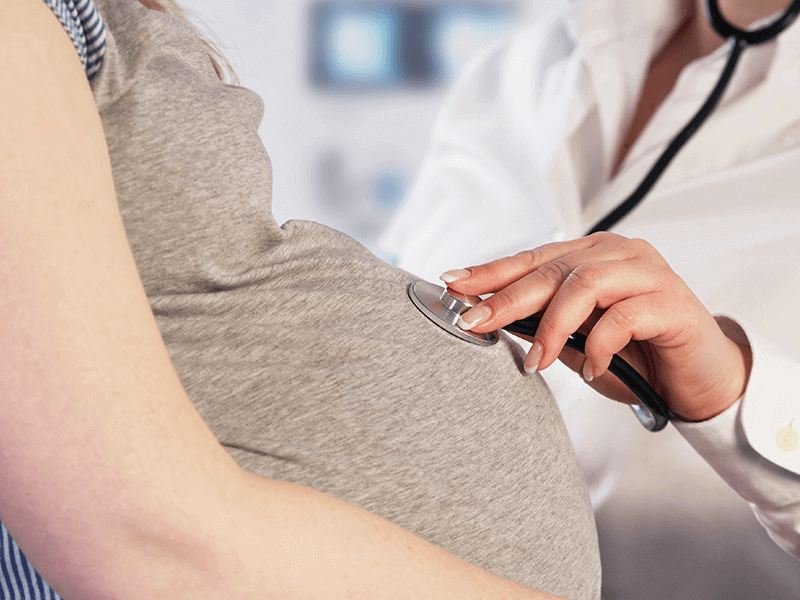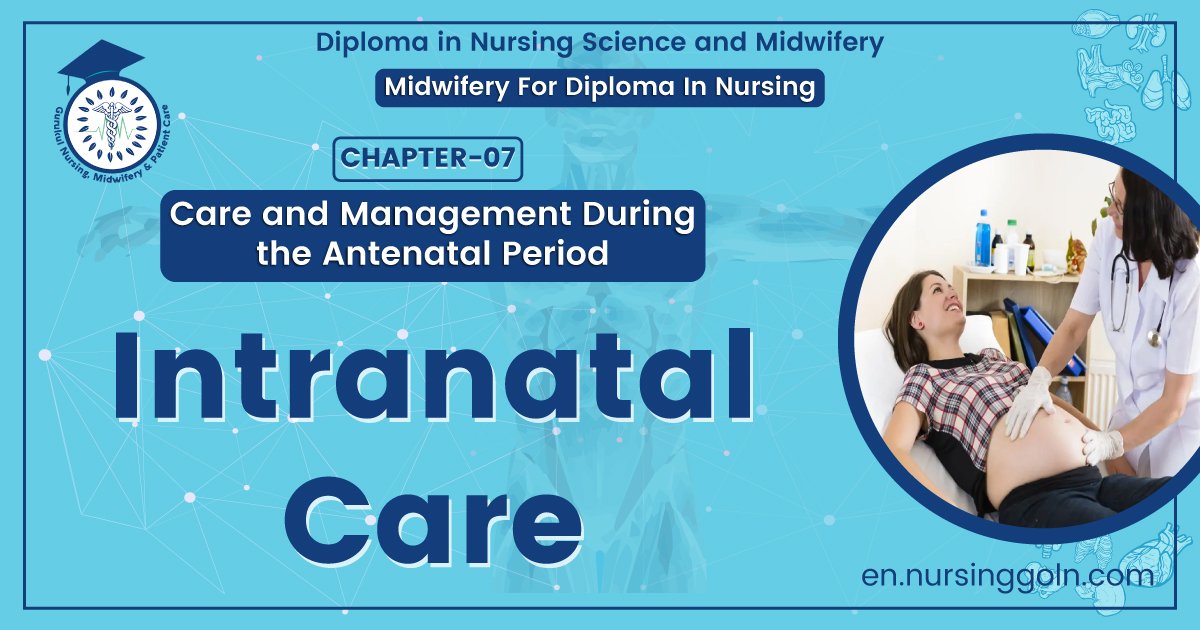Concept about Intranatal Care – This course is designed to understand the care of pregnant women and newborn: antenatal, intra-natal and postnatal; breast feeding, family planning, newborn care and ethical issues, The aim of the course is to acquire knowledge and develop competencies regarding midwifery, complicated labour and newborn care including family planning.
Concept about Intranatal Care
Definition of Intranatal Care:
Intranatal care refers to care given to the mother and baby at the time of delivery. The main objectives here are:
➤ Cleanliness
➤ Smooth delivery without injuring mother or baby
➤ Preventing complications
➤ Delivery resuscitation for the baby
or
Intranatal care refers to care for a pregnant woman throughout labour to ensure safe delivery that is crucial to the women.

Aims/Purposes of Intranatal Care:
1. Asepsis is to be maintained throughout the whole period.
2. Delivery with minimum injury to the infant and mother.
3. Readiness to deal with complications such as prolonged labour, ante partum haemorrhage etc.
4. Care of the baby at delivery- resuscitation, care of the cord, care of the eyes etc.
Objectives of intranatal care:
1. Maintenance of health of mother during pregnancy.
2. Identification of high risk cases and appropriate management.
3. Prevent development of complications.
4. Decrease maternal and infant mortality and morbidity.
5. Remove the stress and worries of the mother regarding the delivery process.
6. Teach the mother about child care, nutrition, sanitation and hygiene.
7. Advice about family planning.
8. Care of under-fives accompanying pregnant mothers.
Importance/ Benefits of intranatal care:
➤ Intranatal care can prevent complications. “A small minority of pregnant women develop complications such as hypertension and diabetes.
➤ Intranatal care provides caregivers with an opportunity to explain the importance of proper nutrition during pregnancy and breastfeeding to expecting mothers
➤ Intranatal care classes will help expecting parents to gain insight and get fact-based information on pregnancy, birthing options, breastfeeding and caring for a newborn baby so that they can make informed choices.
➤ “Intranatal classes also give partners an opportunity to understand the whole process of pregnancy, birth and early parenting”.

Roles and responsibilities of nurse-midwife during intranatal period:
1. Slow delivery of the baby.
Expert obstetric anesthetist in needed when delivery is conducted under G/A.
3. During C/S spontaneous separation of placenta reduces blood loss.
4. Active management of 3rd stage should be a routine.
5. Examination of placenta and membrane should be a routine.
6. In all cases of induced or accelerated labour by oxytocin, the infusion should be continued for at least one hour after delivery.
7. Exploration of utero vaginal canal for evidence of trauma following difficult labour or instrumental delivery.
8. To observe the patient for about two hours after delivery and if the uterus remains hard and contracted only then she should be send to the ward..
Roles and responsibilities of nurse-midwife during intranatal period:
1. Advice: nutrition
Pregnant women should be encouraged to have a normal, balanced, healthy diet. Because of the dangers of toxoplasmosis and listeriosis, women should avoid.
➤ Uncooked meat or fish.
➤ Raw or partially cooked eggs, and products such as fresh mayonnaise which may contain raw eggs.
➤ Milk that has not been pasteurised.
➤ Raw shellfish.
➤ Shark, swordfish and marlin (due to high mercury levels).
➤ More than two portions per week of oily fish.
➤ Unwashed fruit or vegetables.
Vegetarians, and especially vegans, may be at risk of nutritional deficiencies and may need to be referred to a dietician for advice about obtaining all nutrients through diet.
2. Advice: supplements
- Folic acid
All women intending to become pregnant, and those who are, should be advised to take 400 micrograms of folic acid up to 12 weeks of gestation to reduce incidence of fetal neural tube defects (NTDs). Supplementation with folic acid is one of the most significant interventions available. 400 micrograms/day for all women have been shown consistently to reduce the incidence of NTDs, such as spina bifida, significantly - Vitamin D
Adequate vitamin D stores during pregnancy and breast-feeding are important for the health of both mother and baby. All women should be advised to take vitamin D supplements (10 micrograms 400 units per day). Caution with vitamin D supplementation is needed in women with sarcoidosis or renal disease. - Iron
Iron should not be offered routinely as it has no benefit to either mother or baby and may cause constipation and other side-effects. Women should be given dietary advice, encouraging dietary intake of iron. Where supplementation is required, this will be picked up on routine blood tests at booking and 28 weeks. If established, it should be treated with 100-200 mg of oral elemental iron per day f y for three months and for at least six weeks
postpartum. - Other vitamins
Women should be warned that high levels of vitamin A may be teratogenic and therefore that they should avoid extra supplementation Liver and liver products may contain high levels of vitamin A and should be avoided. Where using multivitamin preparations, women should use those which are specifically designed for pregnancy.
3. Advice: medication
Advise women to use as few medicines as possible during pregnancy and only when benefit outweighs risk. This includes OTC medication and complementary therapies, as few products have been shown to be definitely safe during pregnancy. Ideally review any regular medication pre-conception but, if this has not been done, as soon as possible in pregnancy.
4.Advice: lifestyle
- Exercise
Women who exercise regularly should be advised to continue to do so. - Sexual intercourse
This has not been shown to cause any harm during pregnancy. It may be advisable to avoid it if there is risk of preterm rupture of membranes or if there is placenta praevia, although evidence is limited. - Alcohol
High levels of alcohol consumption during pregnancy may result in the fetal alcohol syndrome (FAS). There are various components including growth restriction, general learning disability, facial anomalies and behavioural problems. - Smoking
Smoking in p in pregnancy is associated with a large number of adverse effects in pregnancy-
➤ Intrauterine growth restriction and low birth weight.
➤ Miscarriage and stillbirth
➤ Premature delivery
➤ Placental problems
5. Recreational drug use should be avoided
6. Treating symptoms of early pregnancy: Nausea and vomiting of pregnancy generally resolve by 12-20 weeks of gestation. Heartburn may be alleviated by taking small meals and raising the head of the bed. It may need antacids. Constipation is is another common symptom in early pregnancy. Women should be advised on diet to combat this (fluids and increasing dietary fibre) or may use bran or wheat fibre supplementation.

